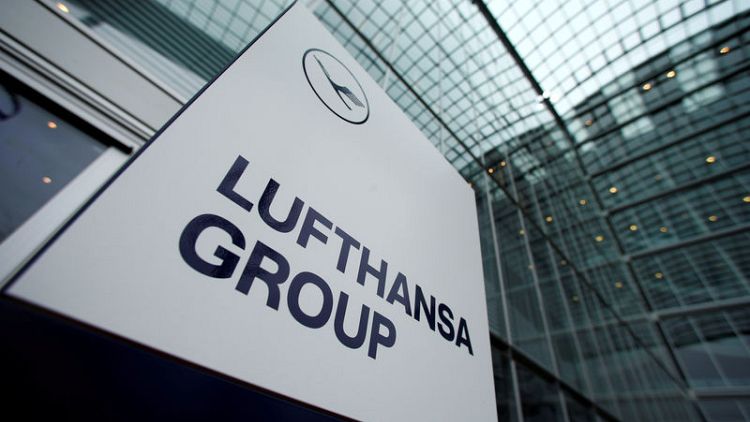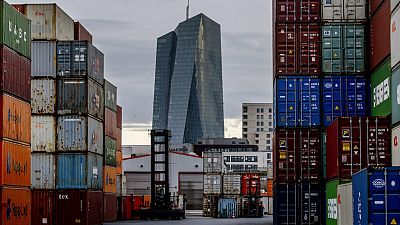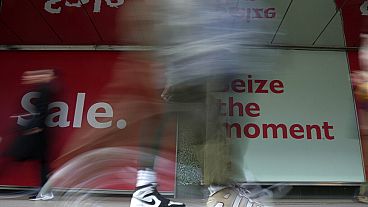BERLIN (Reuters) - German airline Lufthansa <LHAG.DE> on Tuesday posted a decline in second-quarter earnings, hurt by price competition on short-haul routes and rising fuel costs, adding the European market would likely remain challenging until at least the year's end.
The company said in a statement that adjusted earnings before interest and tax (EBIT) fell to 754 million euros (£692.33 million), compared to 1 billion euros a year earlier.
"Our earnings are feeling the effects of tough competition in Europe and sizeable overcapacities, especially on our short-haul routes out of Germany and Austria," said Ulrik Svensson, Lufthansa's Chief Financial Officer.
He said Lufthansa was reacting by cutting costs further and boosting flexibility, adding it hoped a turnaround plan announced for Eurowings in June would make its low-cost carrier sustainably profitable.
Back then Lufthansa said Eurowings would aim to slash costs by 15% over the next three years and focus on short-haul flights as part of a plan to return to profit by 2021. Lufthansa cited falling revenues at Eurowings as a major reason behind a profit warning last month.
Eurowings - which is facing tough price competition from Ryanair, easyJet <EZJ.L> and Wizz Air <WIZZ.L> - saw its unit revenues decline by 5% on a currency-adjusted basis in the second quarter but Lufthansa said the drop had eased largely due to a pick up in the long-haul business.
Ryanair on Monday reported a 21% drop in quarterly profit as price wars in some European markets drove ticket prices lower. But Wizz Air last week raised its full-year capacity growth outlook after a strong start to its financial year.
Lufthansa maintained its guidance for 2019, having in June cut its full-year profit forecast due to lower prices and higher fuel costs compounding the effect of losses at its budget subsidiary Eurowings.
Fuel costs were 255 million euros higher in the second quarter than in the previous year, it said.
Newspaper Handelsblatt reported on Monday that Lufthansa is considering adopting a corporate holding structure to simplify its operations, improve profitability and regain the support of investors.
(Reporting by Michelle Martin; Editing by Madeline Chambers)



